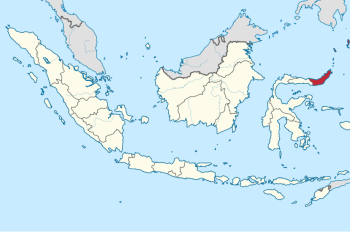
Since Hamas’ attack on Israel on October 7, 2023, and the ensuing war that has increasingly escalated to the wider region, Christian Daily International has featured several perspectives on the situation in the Holy Land. At the recent Lausanne Congress on World Evangelization in Incheon, Korea, the conflicting views among evangelicals came to the fore again after a speaker’s comments on the war in Gaza caused offense with some groups that then pushed for Lausanne’s leadership to issue an apology, which in turn only further fueled the controversy. Following the Congress, a separate conference brought together Global South mission leaders in Busan, Korea, including Arab-Israeli Christian Dr. Emil Shehadeh who sat down with Christian Daily International for an interview to share what he considers a more Jesus-centered attitude.
Sharing that only a few days ago, one of his neighbor’s relatives was killed by shrapnel from a Hezbollah rocket fired into Northern Israel, Shehadeh lamented the cycles of violence, death and destruction in the Holy Land and the wider region. But he expressed his disagreement with those Christians who tend to speak out in favor of one side or the other without acknowledging that politics offers no real solution to the ongoing conflict. He strongly believes that Jesus’ call for the Church was and still is to first and foremost focus on spreading the gospel and living out the love of Christ.
Shehadeh was born into a Palestinian Christian family as his parents were born before the United Nations’ resolution to partition the land into Jewish and Arab states in 1947. He himself was born after that year, he said, “so I have an Israeli passport, but culturally, I'm an Arab.”
Growing up, he would join his evangelist father going around in the villages of Galilee to hand out Bibles and tracts. At age 14, he entrusted his life to Jesus and started serving with Operation Mobilization and Child Evangelism Fellowship. Later, he would go on to study medicine in England remaining active in sharing the gospel in college through a Christian union he started. After practicing medicine for more than thirty years, he said he felt a strong call to retire and serve God. Joining up with a close friend, they traveled together to various countries with Shehadeh speaking on Islam and teaching how to reach Muslims for Christ, a topic that he is also looking into more deeply as part of his research in conversion studies.
Asked about his perspective on the situation in the Holy Land as a believer of Palestinian origin, Shehadeh said he believes there are several critical points to consider “but the most important one is that Jesus said, ‘My Kingdom is not of this world.’” (John 18:36)
Referring to Acts 1:6-8, he added that “when the disciples asked Jesus, ‘Will you at this time return the kingdom to Israel?’ – meaning the political Messiah will come and return the land to them – Jesus didn't say ‘no’. And I believe it means that the land is still there, God is faithful, and all His promises are forever. But Jesus is really saying to the Church: ‘It's not really your business.’ Then he says, ‘Go into the world, I'll give you the Holy Spirit and you'll become my witnesses to the ends of the earth.’”
Shehadeh believes that this is a strong indication that Jesus does not see land or politics as a primary issue that believers should be concerned about. Instead, his followers should be “witnesses for the crucifixion, resurrection and glorification of Jesus as the lamb of God who saves the world.”
From a political standpoint, he said that the situation is very complicated, which is why it hasn’t been solved yet after all these decades. In fact, he doesn’t believe that there will be a political solution “because both sides have a theology or a worldview that's very self-centered,” Shehadeh says. “It's not God-centered. And both believe in eye for an eye and tooth for tooth.”
Therefore, he believes that Christians are called to “preach the gospel” and “live a life of mercy, a life of love, a life of justice” and “not interfering or lecturing other nations” as some believers do when they politically side with only Israelis or only Palestinians. “We have to do justice by example,” he added. “We feed the people of Gaza, we feed the people of Palestine and Israel. We pray for both. We show them love, but we don't lecture either side.”
Evangelical Zionists versus Palestinian gospel
He went on to illustrate the issues with what he sees as the two extremes that currently exist among Christians, arguing that both are neither biblical nor helpful.
“You've got the evangelical Zionists or Zionist evangelicals who give the impression that your calling as a Christian is to defend Israel. Israel can do no wrong. Israel is the blonde, blue-eyed boy of the Middle East. So that's obviously wrong,” he said.
On the other hand, there is another extreme view emerging “what they call the Palestinian gospel, as if there is more than one gospel,” Shehadeh said.
This view that has been adopted by some evangelicals in the Middle East calls on believers to practice justice. However, they believe that this means to “lecture the nations around us how to be just. So, they're calling for the Church to side with them on the Palestinian issue and are happy to condemn Israel disproportionately, which I think is unhelpful,” he commented.
Shehadeh also finds their argument strange when they say that the Western Church’s friendly attitude towards Israel is causing an offense to the Palestinians.
Firstly, he pointed out that this view is inaccurate because it “lumps the Western Church in one basked” when there are many different views among Catholics or Protestants and all the various denominations who “don’t all think the same” and “don't all adopt the same posture towards Israel”.
And secondly, he goes back to the argument that Christians should not take either side. “We side with the gospel. Our business is to preach the gospel,” he emphasizes. “And both sides are suffering. We show mercy to both sides. Jesus, who is the great judge, will come back and judge the world, and it is then that we will sit with him and judge the nations – not now. Now he's the Lamb of God and we are his ambassadors.”
‘History seems to start where it suits us’
Asked what he considered some of the issues of the competing narratives around the Holy Land, Shehadeh said he believes it is important to recognize that both sides are at fault, and there are issues with both types of narratives that favor one side or the other.
He argues that some Arab evangelicals seem prone to adopt “an almost Islamist view of history, which is very forgiving towards Arab violence and very particular with any Jewish actions.” They also blame the West as they talk about colonialism, he said but highlighted that their view of history only begins with what happened 75 years ago while ignoring the earlier centuries.
“But what happened to the Ottomans who conquered the Middle East and abused both Arabs and Jews? What happened to the Abbasids and Umayyads and the armies of Muhammad and all his successors? So, we have a memory of convenience. History seems to start where it suits us, and we need to have a degree of honesty,” Shehadeh said.
He pointed out that it is a fact that God brought the people of Israel into that land and told them it was theirs. “Even the Quran say so! Three times it says, ‘God has favored you over other nations’,” he said, adding that “it is not abrogated anywhere” that someone could say it is no longer valid.
Shehadeh is not sure why Christians are worried about admitting that God has given Israel the land, but reiterates that he doesn’t get involved in such conversations because he doesn’t want to politicize the gospel. On the other hand, he believes “Christians ought to be honest with themselves and say, look, this is how it is, but it is not my business.”
Speaking specifically to evangelical Zionists, Shehadeh emphasized, “There's nothing you can do to hasten God's plan or force it on the world. Just get busy preaching the gospel.”
And speaking to Palestinians or Christians living under Muslim majority rule, he cautioned, “You have to have courage to either just keep quiet on the subject or say it as it is.” He doesn’t agree with compromising the truth for the sake of one’s safety, adding “the early Church didn’t.”
‘The most attractive aspect of Christianity is the person of Jesus’
Finally, Shehadeh was asked what he believes Muslims find most attractive about the Christian faith, given his own life’s focus on reaching them with the gospel. Highlighting the findings of his research where he surveyed 4,833 Christians from Muslim background, he said, “By far the most attractive aspect of Christianity is the person of Jesus.”
That is why he is so convinced that Christians nowadays should “go back to Jesus” and consider how he responded to the circumstances of his day. “How did he react to the Romans abusing his people, crucifying them every day, keeping them hungry, naked, without food, without clothes, exploiting them with high taxes? Did Jesus ever criticize the Romans? He never did.”
Pointing to a passage in Luke 13:1-5, he said that there were some who asked Jesus about Pontius Pilate killing people and mixing their blood with their sacrifices. “Jesus didn't comment. He didn't say, let's go and protest. Let's start a movement. Let's boycott Roman goods. None of the sort,” Shehadeh said. Instead, Jesus warned them that if they didn’t repent, they would likewise perish. “It’s the gospel again. Jesus’ focus is on the gospel,” he added.
Coming back to the research among Muslims who became Christians, Shehadeh said that he identified at least eleven factors that attract them to Christianity. While to some even a European lifestyle and Christian traditions of celebrating Christmas or Easter are attractive, he said “most of them have to do with Christians living the life of Christ: forgiveness, love, mercy, charity.”
These are what he believes Christians should focus on.





